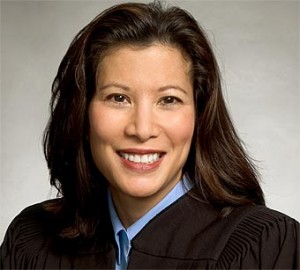Get ready for another workforce trend brewing in California.
According to the San Jose Mercury News, today “the California Supreme Court … is set to consider where to draw the line in defining employer obligations to ensure workers actually take breaks required under state law.”
What makes this a potential trendsetter is the size and scope of the case. As the newspaper notes:
The case involves a potential statewide class action against Brinker International, which operates a chain of restaurants that includes such popular eating spots as Chili’s and Maggiano’s Little Italy … The lawsuit, which could cover tens of thousands of Brinker waiters, waitresses, bartenders, cooks and others, has been unfolding for eight years, claiming the chain’s restaurants regularly failed to assure employees got their breaks and thus violated California labor laws.
But the issue before the Supreme Court has far broader implications. With growing legal uncertainty in the area, a cottage industry has sprouted in the courts, where lawyers for typically low-wage workers have sued a host of businesses for meal and rest break violations, from restaurants such as the Cheesecake Factory and Olive Garden to retailers such as Best Buy.
The result has been tension between businesses worried about being sued if their workers don’t take their breaks, even if they are offered, and employees who often complain there is an unspoken rule in busy moments on the job that they must forgo lunch and press on with their work.”
“Impossible” to take meal breaks?
Given that California is all-too-frequently on the cutting edge of so many workplace trends that take root and then spread across the country, this case has the potential to do this yet again.

“The reality is,” according to Brad Seligman, a lawyer for a number of worker rights groups who talked to the Mercury News, is that “employers set up a situation where it’s virtually impossible (to take meal and rest breaks).”
And here’s the crux of this issue:
For the Supreme Court, the key issue centers on whether employers need only provide the opportunity for meal and rest breaks under 11-year-old state regulations, or if they must go further and ensure their workers take their breaks to avoid penalties.
State labor regulators have repeatedly punished employers for break violations since beefing up the rules, and a number of companies have paid significant cash settlements to resolve lawsuits.”
The larger issue that this case gets into, whether you are talking about hourly workers or salaried employees, is the notion of “unofficial” and “unspoken” policies that employers sometimes use to lean on workers in an attempt to skirt workplace rules and the law.
Unspoken workplace policies
For example, I used to work at a company that said clearly that workers must be paid overtime when they work over 40 hours and cannot take comp time, but then failed to put much overtime pay in the budget. One year, I had three hours per week of overtime pay available — an impossible budget to meet at a daily newspaper where one city council meeting that runs a little long can blow out your weekly OT budget.
Of course, I was also told in no uncertain terms that I had to “do what you need to do” to get everything covered for the newspaper, leading to a situation where the only way I could cover OT situations with a ridiculously tiny overtime budget was to cut under-the-table comp time deals with the staff — a situation that could have gotten me fired.
And that is what the California Supreme Court is looking at when you get right down to it: conflicting and unspoken workplace policies that force workers and managers to break the law in order to make it all balance to the satisfaction of their corporate superiors.
This is a case worth following because whatever the California Supreme Court rules, it is likely to be precedent-setting and cited in other similar cases as they spread across the country.
As Catherine Fisk, a UC Irvine law professor, put it when she talked with the Mercury News:
I think it can’t just be an employer has a company manual that says you can take a break, but managers can say, ‘What are you doing, why are you taking a break?’ You have to do more than give lip service to the law.”
It’s a good point, and it is one that will probably be settled here in California, and then will spread across the rest of the country, too.